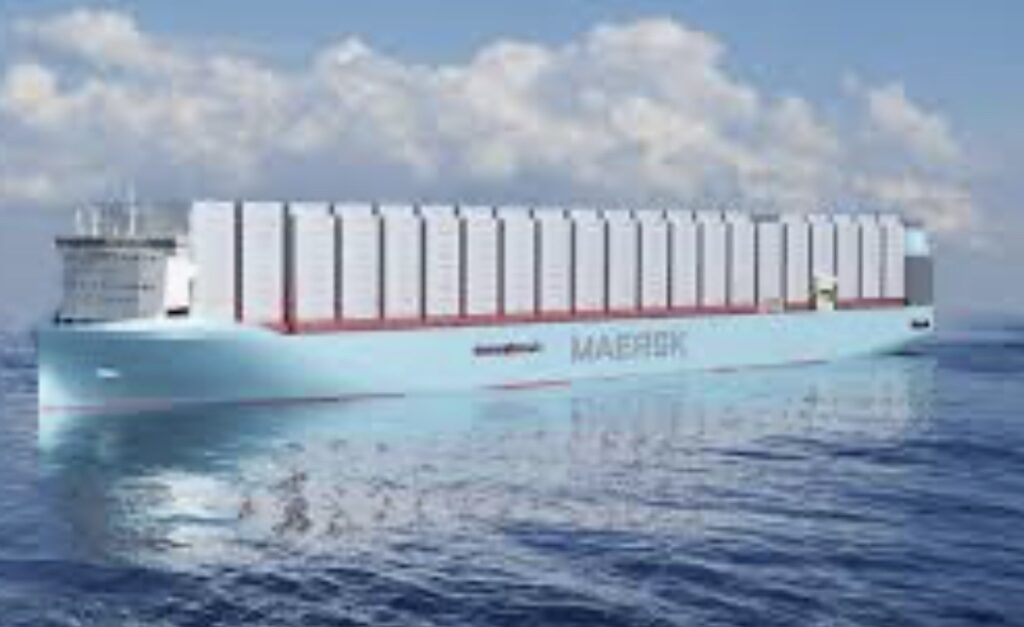Do you have challenges at borders? Strategic Customs Planning will help you save money & make you sleep better at night. Make customs a diffrentiator for your business.
Watch the second video of our three-part series about how Strategic Customs Planning not only brings predictability & resilience to your supply chains, but also can save you money – today.
Maersk Customs Services (MCS) has through our Global Trade and Customs Consulting (GTCC) products developed integrated solutions with digital support for your business.
Our global pool of experts connect global with local knowledge using datadriven analysis to support the journey of your goods, end-to-end, cross borders in an optimized cost-efficient way. Always All The Way.
Of the new flying shipping lines, Maersk Air Cargo seems to be leading the field, with confident steps towards growth.
The liner-forwarder-integrator is set to receive another aircraft shortly and is increasing frequencies and capacity on its key routes, it said.

Its transpacific corridor between Chicago Rockford and Hangzhou Xiaoshen will see weekly rotations double, to six, and its weekly rotations between Greenville-Spartanburg, via its Senator operations, to Incheon and Shenyang Taoxian, will rise from two to three.
Maersk Air Cargo is also set to start operating the fifth of six 767 freighters ordered initially, which will go on its Billund-Hangzhou route, boosting weekly rotations from three to five.
“The introduction of an additional aircraft together with a substantial increase in rotations will further expand our ability to service our customers with regular flights and controlled capacity,” said Michel Pozas Lucic, global head of air.
“At the same time, we are further strengthening our position as a truly customer-driven partner in the global air freight market.”
And Maersk noted its air freight lanes were “customer-backed” – indicating a degree of guaranteed demand.
Its sea-going rivals, however, seem less sure-footed in the skies.
Sources have told The Loadstar there have been some recent staff changes at CMA CGM Air Cargo, with three managers quitting and more expected to follow.
They said: “There have been quite a few changes and not everyone is happy with some of the new people on board. I don’t think it’s specifically about working with AF-KLM, but some people aren’t so keen on the joint-venture either.”
That joint-venture doesn’t cover North America – and neither does CMA CGM, after pulling its routes last year.
The French group does not break out its financials by air specifically, but bunches it with terminals and ‘other’, including ‘media’. It announced its Q1 results last month, with revenues from ‘other activities’ growing 5.3% over the previous year.
Source:TheLoadStar
Together with its logistics partners Maersk, Kuehne+Nagel and DB Schenker, Volvo Cars is switching to using renewable fuels on the majority of journeys across the world’s oceans. Sea transport is required to get materials and equipment for production in the car manufacturer’s factories around the world (Volvo has factories in Sweden, Belgium, the USA and China).

According to Volvo, they are the “first global car manufacturer” to make the switch from fossil to renewable fuels for this type of intercontinental sea freight. According to calculations, the amount of fossil carbon dioxide emissions is reduced by 55,000 tons annually, which is said to be at least 84 percent lower CO2 emissions than before. The amount of carbon dioxide that is reduced corresponds, according to Volvo Cars, to the amount that a fully loaded truck emits when driving around the equator – about 1,200 times.
The fuel that is switched to is what is called FAME, that is Fatty Acid Methyl Esters (Fatty Acid Methyl Esters in English) which are based on renewable and sustainable sources, above all from the waste of cooking oil. Volvo Cars points out that no raw material is linked to palm oil or palm oil production.
The renewable fuels used are certified and are said not to compete with the production of food crops and are classified as sustainable in accordance with the EU’s renewable energy directive.






You must be logged in to post a comment.